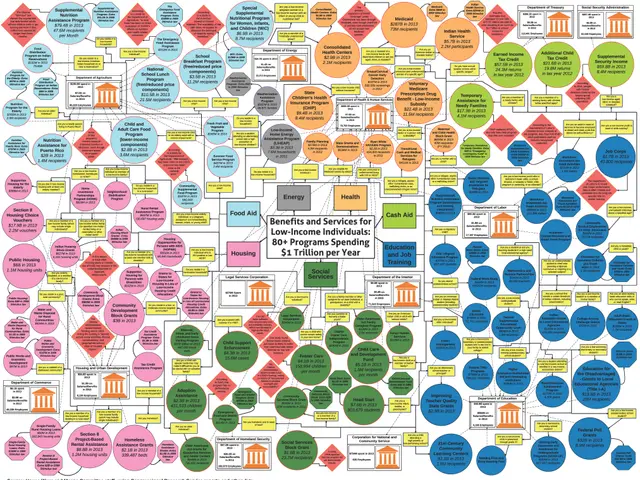Unveiling Two Promising AI Chip Manufacturers to Watch in 2025, Sans Nvidia or AMD
In the early days of artificial intelligence (AI) infrastructure development, graphic processing units (GPUs) were the go-to chips for training AI models and running inference. Initially designed for speeding up graphics rendering in video games, GPUs gained popularity due to Nvidia's software platform allowing developers to program their chips for various purposes.
However, prominent tech companies have also started using custom AI chips, or ASICs (application-specific integrated circuits). ASICs are tailored for specific purposes, often outperforming GPUs in efficiency and task-specific performance, although they lack the flexibility of GPUs.
Two companies leading the custom AI chip market are Broadcom and Marvell Technology.
Broadcom has garnered recognition as the leader in the AI chip market, with Alphabet as its first client. Broadcom helped develop Alphabet's tensor-processing unit (TPU) called Trillium, designed for Google Cloud's TensorFlow software library. Trillium includes matrix multiply units (MXUs) and SparseCores, which speed up large matrix multiplications and models relying on embeddings.
Alphabet acknowledged that the custom chips offered advantages over GPUs, reducing costs while shortening inference time in its cloud computing segment. Broadcom's business with AI chip customers saw significant growth in fiscal 2024, surpassing expectations.
Marvell Technology, another player in the custom silicon market, partnered with Amazon to help develop the Trainium chip for large language model (LLM) training. While Broadcom's chip development was more extensive, Marvell primarily contributed high-speed SerDes and Intellectual Property. Marvell reported a five-year agreement with Amazon's cloud unit AWS for custom AI products and data center switches.
Both companies recognize the vast potential in the custom AI chip market, pegging it at $40 billion for Marvell and $60 billion to $90 billion for Broadcom. As data center spending continues to grow, this sector is expected to see strong growth in the coming years.
Custom AI chips like Broadcom's Trillium and Marvell's Trainium offer several advantages over GPUs for AI training and inference. They provide increased energy efficiency, specialized hardware, scalability, cost-effectiveness, and algorithmic efficiency for specific AI tasks.
Still, GPUs remain popular due to their versatility, featuring well-established software ecosystems like CUDA and cuDNN.
References:[1] 'AI chip race led by NVIDIA; how IBM's analog chip and other competitors stack up.' Source: https://towardsdatascience.com/ai-chip-race-led-by-nvidia-how-ibms-analog-chip-and-other-competitors-stack-up-db54de802a56[3] 'DeepSeek AI: Nvidia's Turing GPUs Smoked by Chinese Startup's Single-Chip Solution.' Source: https://www.extremetech.com/computing/304056-deepseek-ai-nvidias-turing-gpus-smoked-by-chinese-startups-single-chip-solution
Investing in custom AI chips could potentially yield high returns, given the projected market growth, with companies like Broadcom and Marvell predicting revenues of up to $90 billion and $40 billion respectively. To maximize profits, one might consider financing the development of specialized hardware for specific AI tasks, as Alphabet did with Broadcom's Trillium TPU.
In today's finance landscape, the choice between investing in custom AI chips and traditional GPU technology depends on the desired balance between versatility, energy efficiency, and task-specific performance.








